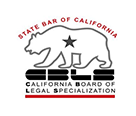California companies with immigrant employees must take steps to make certain that they comply with a variety of federal and state laws. Navigating between the two and following both might seem tricky, but doing so is important.
Businesses are not allowed to use E-Verify, the Social Security Number Verification Service or Form I-9 to check to see if applicants are authorized to work in the U.S. However, they may use Form I-9 after they have offered the positions to the applicants. E-Verify cannot be used until after Form I-9 has been completed. If E-Verify comes back with a tentative non-confirmation, employers should allow the employees time to correct the problem. E-Verify sometimes returns non-confirmations for people who are U.S. citizens.
Before hiring an applicant, employers may ask whether they are legally authorized to work in the U.S. They may also ask if they require sponsorship for an employment visa status currently or in the future. Questions about whether a person requires an export license should be limited to positions for which a person would need one if he or she is not a refugee or U.S. citizen. Employees who complete I-9 forms with newly hired employees should undergo training about discrimination so that they do not run afoul of the law.
Employment visas may be available to foreign nationals for positions in some specialty occupations. Employers who are having difficulty finding U.S. citizens to fill their positions might want to consult with an immigration attorney about business immigration and obtaining visas for workers that they would like to employ. An immigration attorney may help the worker and the employer with gathering and submitting all of the needed information for the visa application.




